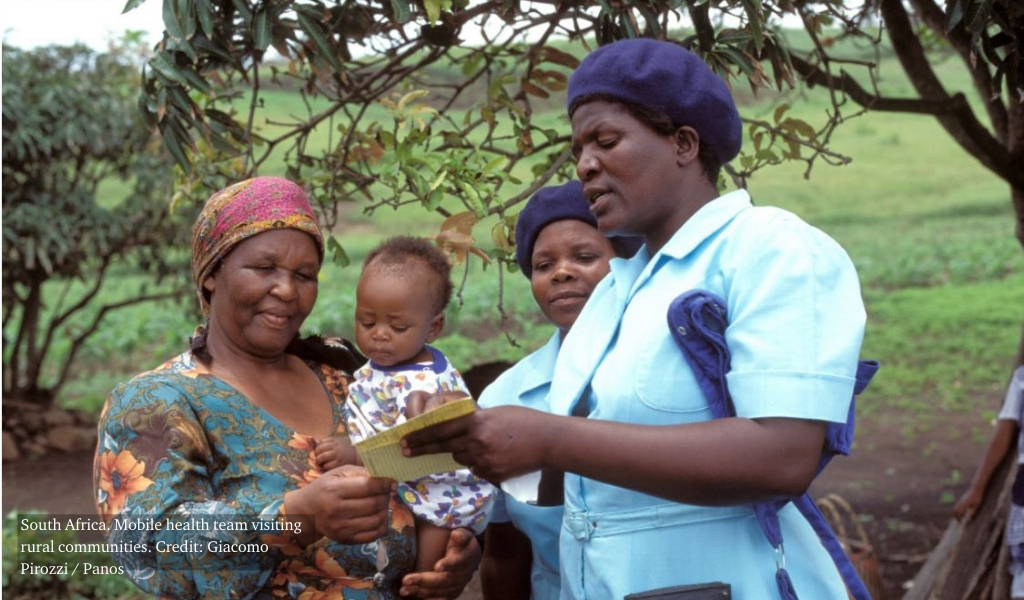Celebrating 10 years of CDI
As we celebrate ‘10-years of CDI’ we are excited to be launching a series of actions on the practice of bricolage. We invite you to reflect with core CDI partners IDS, Itad and UEA, and our broader CDI community of practice on the ways in which evaluators are mixing and matching methods to design and implement credible and useful evaluation. Evaluators often only adopt certain parts of methods, and skip or substitute recommended steps to suit their purposes. The evaluator may repurpose existing tools with those of methods and tools with which they are more familiar; or they may even combine a patchwork of relevant tools for different parts of an evaluation or throughout the cycle of designing, planning, monitoring, and evaluating a project.
Past actions:
- On 3rd October 2023, as part of the UKES 2023 Annual Conference Marina Apgar, Tom Aston (independent), Giovanna Voltolina (Itad) and Melanie Punton (Itad) used the framework for bricolage from CDI Practice Paper 24, to reflect on experiences with ensuring rigour in bricolage through two Itad evaluations.
- During the AEA 2023 Conference Marina Apgar and colleagues from the Inclusive Rigour network explored experiences with bricolage through combining narrative and participatory methods in the practice of inclusive rigour.
- In a series of blog posts, the authors of earlier CDI Practice Papers looked back and reflected on how they adapted or combined their methods in their evaluation practice.
- Tom Aston delivered a keynote presentation at the Danish Evaluation Society on the recent evolution and increasing hybridisation of evaluation methods, and the benefits of bricolage.
Do you have experience with methodological bricolage you’d like to share? We’d love to hear from you so please get in touch with the Centre for Development Impact [email protected] if you’d like to share your story through a CDI webinar see here for past events.
And, sign up to our newsletter and watch this space for new actions and ways to get involved such as an upcoming call for papers for a special issue on Bricolage in Practice.

South Africa. Mobile health team visiting rural communities. Credit: Giacomo Pirozzi / Panos
Who are we?
CDI helps to design, backstop and implement evaluations that reflect on the outcomes and effectiveness of development interventions. Debates around impact evaluation have received renewed interest in recent years. Alongside a growing pressure on politicians and policymakers to demonstrate results and value for money, conventional evaluation approaches are critiqued for not living up to the learning and adaptive management much programming needs. In large part this is because they are too narrowly focused or unable to explain how interventions interact with other factors when generating outcomes in complex systems through often emergent and uncertain causal pathways. CDI is a community of practice, that works to broaden the range of evaluation designs and methods and ways of assessing what quality and rigour means when working in conditions of complexity.
At CDI, we value the appropriateness of evaluation design choices to the specific situation and stakeholder learning needs: what questions, in what context, about what intervention components, for what purpose, and within what resource constraints.
We value ways in which the perspectives of many stakeholders, including the poor and most marginalised in society are reflected in evidence and how their lived experience can drive understanding and be amplified through the process of evaluating change (in design, data collection, analysis, and use of the evaluation). Different perspectives and their framings can enrich our understanding of the impact and empower people to seek more equitable change.
We value evaluations as a way to improve social accountability to citizens—knowledge and evidence shape power relations. The democratic gap between those making decisions and those affected by interventions is set to widen. We value ways in which evidence of impact can be used (and be part of deliberative processes) that increase accountability to those too often left behind.
Recent Publications
CDI Practice Papers
- CDI Practice Paper 25. Process Tracing Innovations in Practice
- CDI Practice Paper 24. The Art and Craft of Bricolage in Evaluation
- CDI Practice Paper 23. Evaluating Capacity-Strengthening Impact: A Funder Perspective
- CDI Practice Paper 22. Reality Bites: Making Realist Evaluation Useful in the Real World
- CDI Practice Paper 21. Assessing the Relative Importance of Causal Factors
- CDI Practice Paper 20. Contribution Analysis and Estimating the Size of Effects: Can We Reconcile the Possible with the Impossible?
CDI Blog Series
- Lessons on using Contribution Analysis for impact evaluation. Learning about systemic change: a contribution analysis inspired approach
- Finding and using causal hotspots: a practice in the making
- Learning through and about Contribution Analysis for impact evaluation
Training and Learning
The Centre for Development Impact (CDI) organised a series of one-hour webinars about various impact evaluation methods within a theory-based evaluation approach. The webinars give a flavour of the various professional courses we organise.
- Giel Ton (IDS) – Contribution Analysis for Impact Evaluation: Learning and Accountability with Mayne’s Six Steps
- Maren Duvendack (UEA) – Theory-based Evaluations: Dealing with Complex Interventions and ‘small n’ Evaluation Scenarios
- Louise Clark (IDS) – Shaping Policy with Evidence: Using Stakeholder Mapping to Identify Pathways to Influence
- Marina Apgar (IDS) & Steff Deprez (Voices That Count) – Participatory MEL: Towards a Systemic Learning Practice
- Mieke Snijder (IDS) – Realist Synthesis for Realist Evaluation of Participatory Action Research
CDI is a joint initiative between IDS, Itad and the University of East Anglia (UEA).
You can find out more about all of IDS’ world-class postgraduate degrees and professional development programmes to build the skills and knowledge needed for more equitable and sustainable development globally.
